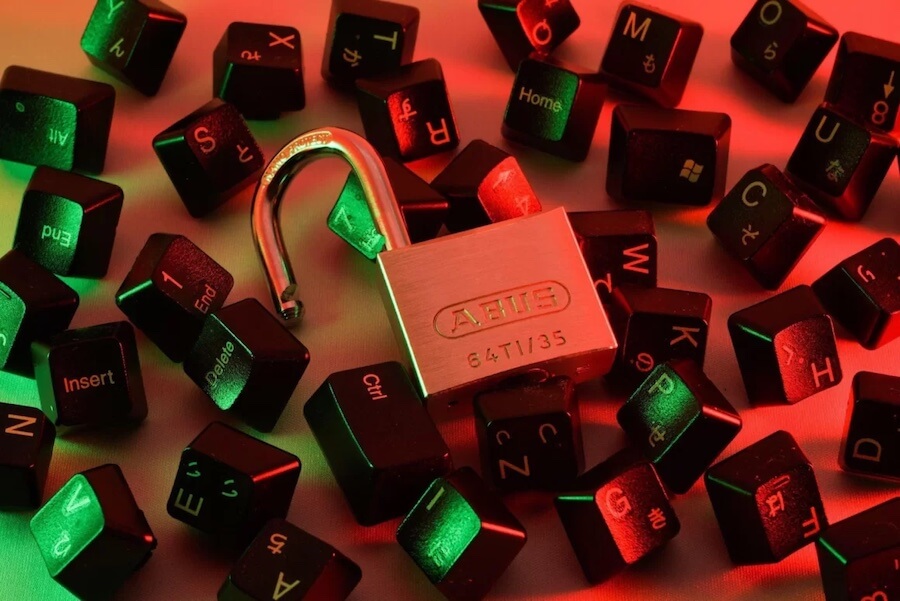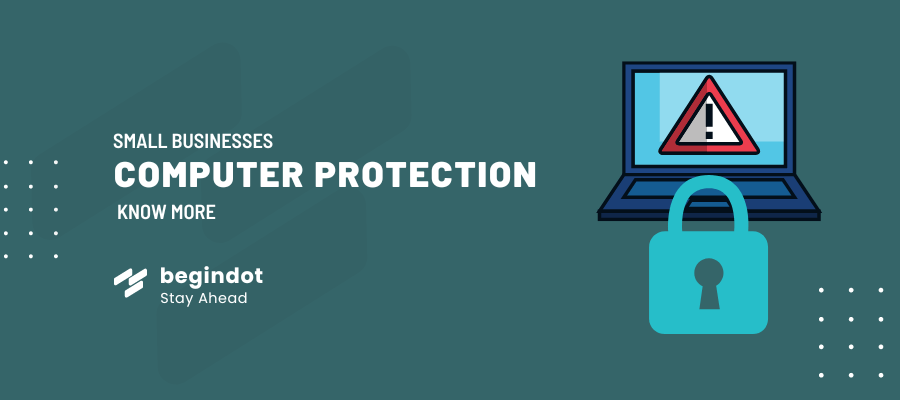Due to fast technological improvements, little businesses increasingly use computers for regular activities. We understand the need to keep corporate ones virus-free.
This article will discuss how these types of occupations may protect their devices from cyberattacks. These measures let compact and medium-sized ones concentrate on growth rather than PC networks.
So, let’s dive into them and see how you can protect your small business computer setup.
The Value Of Securing Company Devices
As a business owner, it’s easy to lose sight of the significance of taking precautions against online threats to your company’s systems.
However, failure to do so might have very negative effects on your business. Damage to your reputation, finances, and data should all occur from a cyber assault. And something that could cause issues is malware.
You can educate yourself about how to clean it via reading fresh 2023 reviews online where mac malware cleaner and others could be found. They may even result in legal action in extreme circumstances.
If you value data privacy and seamless operations, you must safeguard your company’s PCs. To do this, utilize antivirus software, strong passwords for all accounts, and frequent data backups.
Protecting your organization’s system prevents cyberattacks and their costs. Investing in your corporation’s security is a long-term investment that will return dividends.

Advice On Securing Your Company’s Computers
If you operate a company, you need to take precautions to keep your PCs safe from hackers. Here are some suggestions for ensuring the security of your corporation’s devices:
1. Install antivirus software.
Your PCs should always have updated antivirus software. Get a business product of this kind that monitors and updates. Real-time protection checks for new threats and regular updates ensure your software has the latest virus definitions.
This software shouldn’t be your company’s main virus defense. Firewalls and online safety training complement it.
2. Make use of robust passwords.
Check if your primary line of protection against online intrusion. You should advise your staff to utilize complex passwords and to change them often. So, how can you know whether a password is secure? First and foremost, it has to be sufficiently lengthy (we suggest at least 12 characters).
Include uppercase and lowercase letters, digits, and other characters. Don’t include your name or birthday, and don’t use the same password for several accounts. Watchwords should be changed often – every three months is a decent benchmark.
Use a password manager to safely store all your complicated passwords if you find yourself unable to remember them all.
3. Always use the most recent version of the software.
Criminals regularly use small business security flaws in older software to get into networks. Always install the most recent software updates, particularly any security updates. To swiftly recover from an internet attack or system failure, you should regularly back up your critical data.
You may greatly lessen the likelihood of assaults on your company’s systems by adhering to these guidelines. When it comes to this matter, remember that an ounce of prevention is worth a pound of cure.
The Value Of Cybersecurity Education For Workers
If you run a not-so-big business, you might think antivirus software and OS updates are enough to protect your machines. However, your workers pose a serious risk to the online security of your organization.
That’s why it’s crucial to provide employees with this kind of education. Staff training reduces data breaches and other digital assaults. Discussing questionable emails and links, passwords, and sensitive data is important here.
So, don’t forget to master these details. Each of them might be vital in your fight against bad people. Their only aim is to harm your business network security. You must not get that out of your head even for a second.
To defend against cyber criminals, train all your staff. This is an essential detail to remember. And why is that the case? Well, because they could utilize every mistake you make. Only one is enough for them to harm your entire business plan. Hence, keep all significant parts well-prepared.
Apply A Firewall
Using a firewall is a crucial step in securing the devices at your little company. It controls network data transmissions in and out. It adds a barrier between your computer for small businesses and the internet to keep hackers out.
They could be divided into two categories: hardware and software. The first filters are internet-connected devices, unlike software firewalls that are placed on PCs. Both kinds add defense against the malicious online activity.
It’s crucial to correctly configure a firewall while putting it up. This involves determining which packets should be permitted past it and which should be denied. You should also always use the most recent version of this software.
It is only one piece of the puzzle when it comes to keeping your business’s office computers safe. This security measure protects your network and vital data from attackers.
Protect Your Mobile Devices
Your organization’s mobile devices are as important as its desktops. As telecommuting and smartphone technologies become increasingly common, hackers must be kept out of all devices. Passwords and biometrics can safeguard them. If your gadget ever gets into the wrong hands, this provides an additional safeguard.
In addition, always use the most recent patch or update that adds security to your program. Because it may be vulnerable to exploits, hackers often target out-of-date software.
Cybercriminals often enter public Wi-Fi networks, so avoid them. Public Wi-Fi ones are frequently vulnerable, exposing users to man-in-the-middle attacks.
Taking these measures can help safeguard your company and personal information from hackers. When it comes to your security, it’s crucial to maintain a state of constant vigilance and proactiveness.
Conclusion
Your business’s success depends on computer security. Digital attacks are increasing, necessitating data and device protection. Installing firewalls, safeguarding mobile devices, and educating personnel in cybersecurity may lessen the risk of a protection breach.
Its spending is a long-term bet on the success of your company. Stay vigilant and prioritize this matter at any cost. This is crucial if you want to keep the material untouched.










